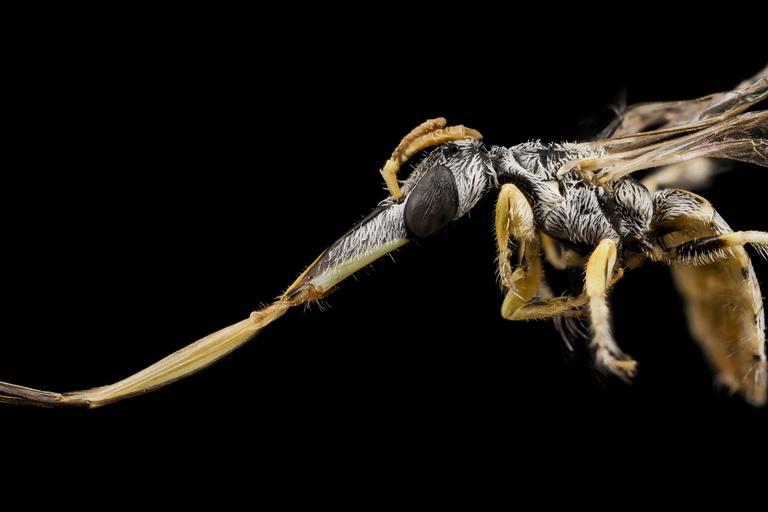MAKE A MEME
View Large Image

| View Original: | Geodiscelis_longiceps,_f,_chile,_face2_2014-08-08-16.25.16_ZS_PMax.jpg (5616x3744) | |||
| Download: | Original | Medium | Small | Thumb |
| Courtesy of: | www.flickr.com | More Like This | ||
| Keywords: geodiscelis longiceps geodiscelislongiceps taxonomy:binomial=geodiscelis longiceps taxonomy:binomial=geodiscelislongiceps nectar chile altacama desert altacamadesert altacama droege biml usgs usgsbiml narrow skinny long face longface desert sandlover small flower #макросъемка макросъемка #makro makro #マクロ マクロ #природа природа #natur natur #自然 自然 الطبيعة# الطبيعة #大自然 大自然 #naturaleza naturaleza #natura natura #насекомое насекомое #insekt insekt #自然الحشرة# 自然الحشرة #昆蟲 昆蟲 #insectos insectos الحشرة black background animal Nectar dries quickly in the Atacama Desert of Chile, the driest desert in the world, and so many plants hide their nectar in deep nectaries. Bees visiting these flowers need long tongues and, in some instances, a very long head to reach the nectar. This tiny species was first discovered in 2004 at the very edge of the absolute rainless portions of the Atacama in northern Chile where it feeds on flowers from Crinklemat plants (Tiquilia). As you can see from the pictures, this is probably the thinnest bee for its length in the world. From the famous Laurence Packer lab. ~~~~~~~~~~{{{{{{0}}}}}}~~~~~~~~~~ All photographs are public domain, feel free to download and use as you wish. Photography Information: Canon Mark II 5D, Zerene Stacker, Stackshot Sled, 65mm Canon MP-E 1-5X macro lens, Twin Macro Flash in Styrofoam Cooler, F5.0, ISO 100, Shutter Speed 200 Further in Summer than the Birds Pathetic from the Grass A minor Nation celebrates Its unobtrusive Mass. No Ordinance be seen So gradual the Grace A pensive Custom it becomes Enlarging Loneliness. Antiquest felt at Noon When August burning low Arise this spectral Canticle Repose to typify Remit as yet no Grace No Furrow on the Glow Yet a Druidic Difference Enhances Nature now -- Emily Dickinson Want some Useful Links to the Techniques We Use? Well now here you go Citizen: Basic USGSBIML set up: www.youtube.com/watch?v=S-_yvIsucOY USGSBIML Photoshopping Technique: Note that we now have added using the burn tool at 50% opacity set to shadows to clean up the halos that bleed into the black background from "hot" color sections of the picture. www.youtube.com/watch?v=Bdmx_8zqvN4 PDF of Basic USGSBIML Photography Set Up: ftp://ftpext.usgs.gov/pub/er/md/laurel/Droege/How%20to%20Take%20MacroPhotographs%20of%20Insects%20BIML%20Lab2.pdf Google Hangout Demonstration of Techniques: plus.google.com/events/c5569losvskrv2nu606ltof8odo or www.youtube.com/watch?v=4c15neFttoU Excellent Technical Form on Stacking: www.photomacrography.net/ Contact information: Sam Droege sdroege@usgs.gov 301 497 5840 Nectar dries quickly in the Atacama Desert of Chile, the driest desert in the world, and so many plants hide their nectar in deep nectaries. Bees visiting these flowers need long tongues and, in some instances, a very long head to reach the nectar. This tiny species was first discovered in 2004 at the very edge of the absolute rainless portions of the Atacama in northern Chile where it feeds on flowers from Crinklemat plants (Tiquilia). As you can see from the pictures, this is probably the thinnest bee for its length in the world. From the famous Laurence Packer lab. ~~~~~~~~~~{{{{{{0}}}}}}~~~~~~~~~~ All photographs are public domain, feel free to download and use as you wish. Photography Information: Canon Mark II 5D, Zerene Stacker, Stackshot Sled, 65mm Canon MP-E 1-5X macro lens, Twin Macro Flash in Styrofoam Cooler, F5.0, ISO 100, Shutter Speed 200 Further in Summer than the Birds Pathetic from the Grass A minor Nation celebrates Its unobtrusive Mass. No Ordinance be seen So gradual the Grace A pensive Custom it becomes Enlarging Loneliness. Antiquest felt at Noon When August burning low Arise this spectral Canticle Repose to typify Remit as yet no Grace No Furrow on the Glow Yet a Druidic Difference Enhances Nature now -- Emily Dickinson Want some Useful Links to the Techniques We Use? Well now here you go Citizen: Basic USGSBIML set up: www.youtube.com/watch?v=S-_yvIsucOY USGSBIML Photoshopping Technique: Note that we now have added using the burn tool at 50% opacity set to shadows to clean up the halos that bleed into the black background from "hot" color sections of the picture. www.youtube.com/watch?v=Bdmx_8zqvN4 PDF of Basic USGSBIML Photography Set Up: ftp://ftpext.usgs.gov/pub/er/md/laurel/Droege/How%20to%20Take%20MacroPhotographs%20of%20Insects%20BIML%20Lab2.pdf Google Hangout Demonstration of Techniques: plus.google.com/events/c5569losvskrv2nu606ltof8odo or www.youtube.com/watch?v=4c15neFttoU Excellent Technical Form on Stacking: www.photomacrography.net/ Contact information: Sam Droege sdroege@usgs.gov 301 497 5840 | ||||